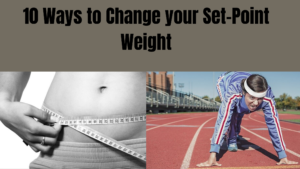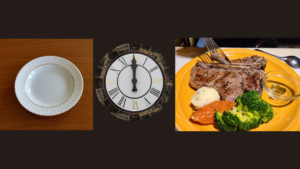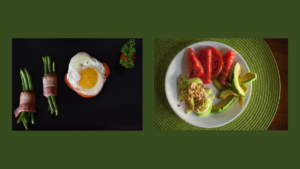TOO MUCH PROTEIN MAKING YOU FAT???

I recently read an article by a fitness professional who was still touting the ideas that “TOO MUCH PROTEIN” will make you fat. This idea has been around for a long time. The first time I heard it was while studying for my ACE Personal Training certification back in 2010.
Hello. My name is Aaron Kubetz, I have been around the fitness and weight loss injury for a LONG TIME. I have been working out on my own since I was 11 and have been immersed in the study of Nutrition and Exercise Science since 2006.
The fact of the matter is that “TOO MUCH” of anything will make you fat However, as pointed out by Jackie Buell, Ph.D., C.S.S.D., an assistant professor and sports dietitian at Ohio State University. “Protein is insulinogenic, meaning it can stimulate an insulin response, which puts the body in storage mode.” (1) This is why in the early stages of a KETO diet you will keep your protein intake moderate to keep INSULIN levels lower. However, ALL FOOD is insulinogenic with fat having the least effect. “Furthermore, our body has a harder time converting protein into a non-protein substance, and no study has yet conclusively shown how much protein you can eat before your body starts changing it to fat.” (1)
Additionally, protein and fat also prove to be more satiating than carbohydrates which makes it harder to eat too much of them. Of course, if you are eating a lot of carbohydrates and then increase your fat and protein consumption the increase in calories can lead to weight gain however from my personal experience increasing fat and protein in your diet from a previously high carbohydrate or normal/average diet tends to blunt hunger. When I was a runner, I would run 10 miles/day and my breakfast was massive consisting of between 5-7 bowls of cereal most mornings. Later in Highschool when I took up weight training, I started supplementing with whey and trying to find ways to increase my protein consumption as a result my overall calories decreased and I would only eat two to three bowls of cereal in the morning along with gaining more muscle. I had a six pack for the first time in my life.
A small 2016 study published in the Journal of the International Society of Sports Nutrition found that when healthy guys ingested up to 3.3g/kg/d of protein and continued their normal strength regimen, they actually lost fat over the four-month period. (2)
Bodybuilders and other elite athletes have known for years from personal experience that high protein does not make one fat but rather in combination with intensive strength training can increase/maintain lean mass, keep you fuller and help you stay lean.
NOTE: This does not mean that I think one should consume massive amounts of protein at the expense of other nutrients because this can lead to nutritional deficiencies and poor workout quality as protein is a poor energy source. However, I adding extra protein while reducing overall calories is in my experience a highly effective way to lose fat while maintaining muscle mass and strength as well as keeping energy levels stable and reducing hunger and cravings. Each person is individual however and for this reason I am a believer in personal experimentation. One way to get started with this is by practicing “METABOLIC TYPING”. You can find out more about this in Paul Check’s book “How to Eat, Move and Be Healthy”.
One last point in closing. Weight loss and overall health comes down to more than any one macronutrient. The idea is to STRIVE for balance however as eluded to in the METABOLIC TYPING philosophy what constitutes balance will vary from person to person with varying lifestyle, genetics and fitness goals. Another thing to point out is that although fat has a satiating effect and does not elevate insulin very much it does elevate another hormone called Acylation Stimulation Protein ASP. Even in the absence of carbohydrate too much fat can cause weight gain. Women are more susceptible to this than men. (3)
The BEST protocol when trying to achieve healthy sustainable fat loss is to strive for balance and determine your “CARBOHYDRATE TIPPING POINT” i.e. the point at which your metabolism is running at top speed but you are still keeping INSULIN low enough to lose fat. If you look at the Krebs Cycle Fat actually burns best when in the presence of carbohydrate.
For more content like this check out Functional Aesthetics E.C. on Facebook.
To schedule a consultation DM or email me at aceproaaron@gmail.com
REFERENCES
1. https://mensfitnessmagazine.com.au/can-too-much-protein-make-you-fat/
2. https://pubmed.ncbi.nlm.nih.gov/26778925/
3. https://pubmed.ncbi.nlm.nih.gov/12917708/#:~:text=Abstract,augmented%20glucose%
2Dstimulated%20insulin%20secretion.




